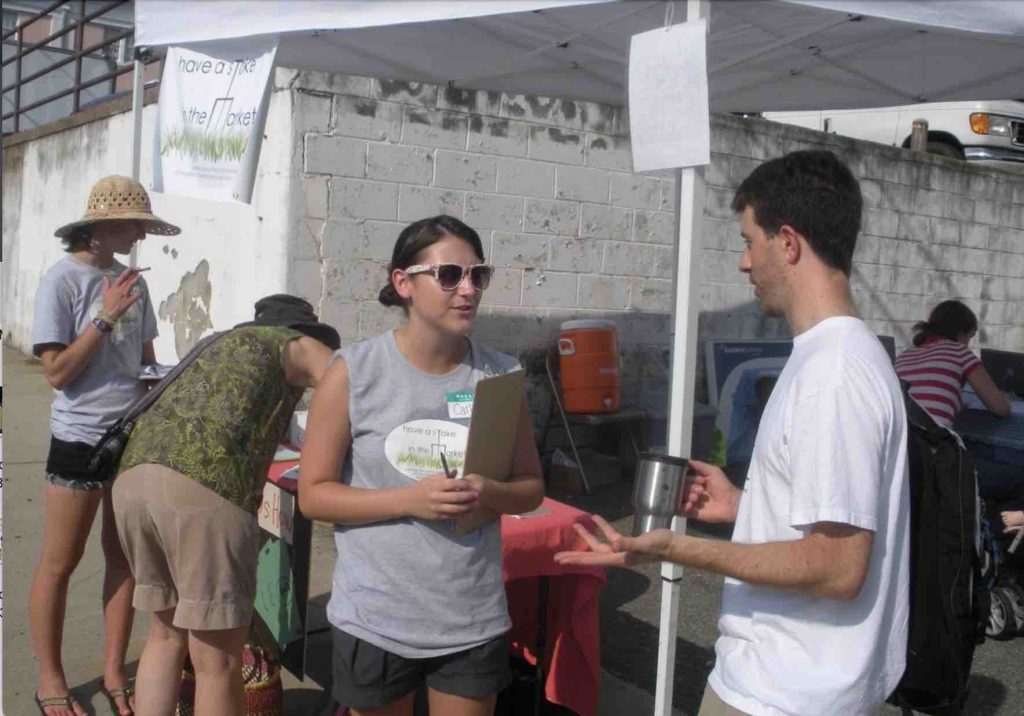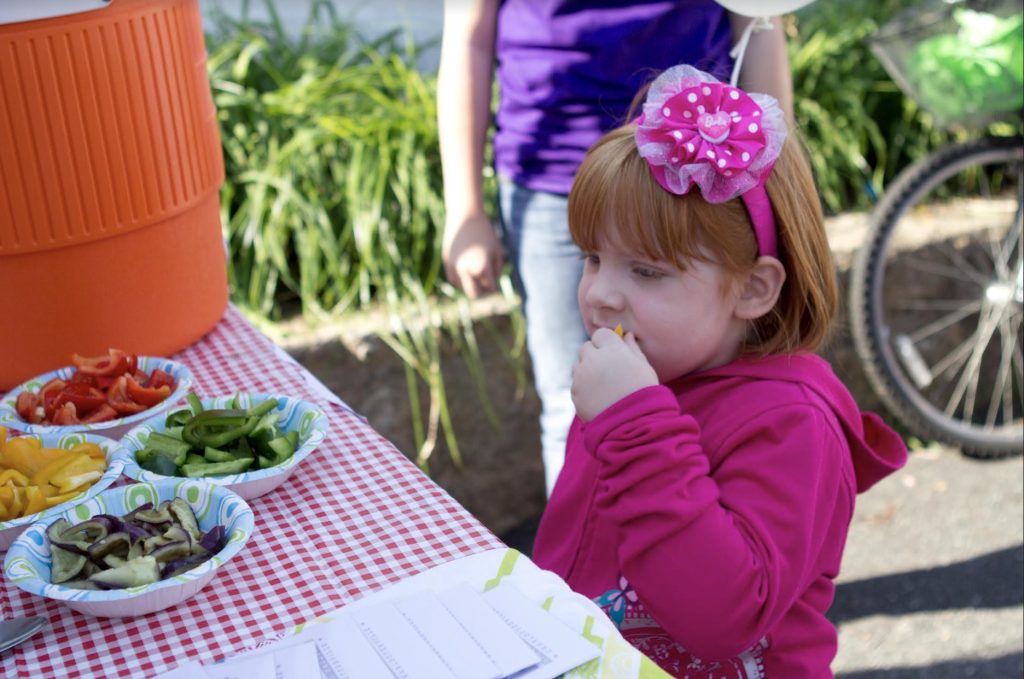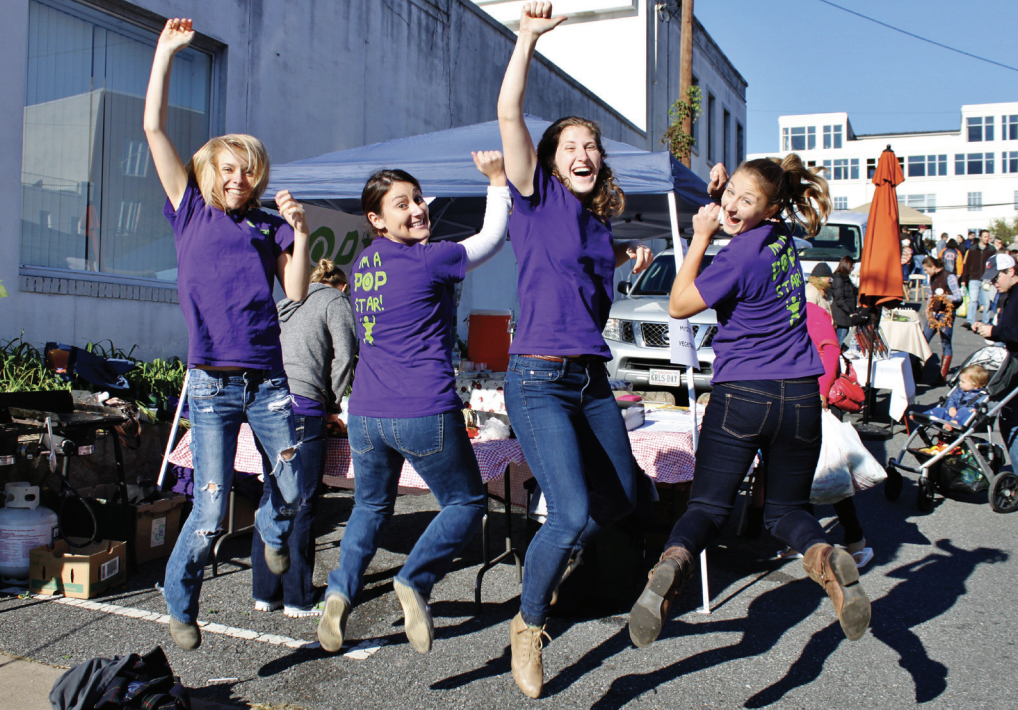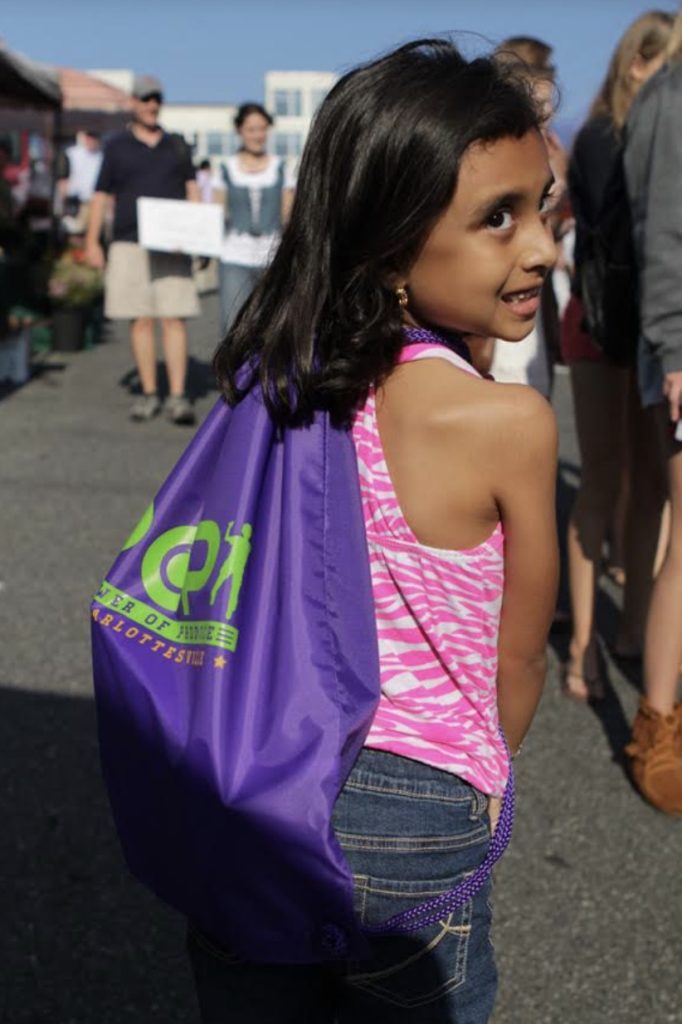ODU Alternative Spring Break ’23
- Description: The Alternative Spring Break (ASB) program is housed within the Service-Learning side of the Office of Leadership & Learning at ODU. The purpose of ASB is to provide students with the opportunity to spend their spring break performing service activities in order to gain experience applying what they learn in the classroom and awareness of their strengths, interests, and growth areas. This year’s ASB was the first local iteration where students remained in the area and performed service around Hampton Roads instead of traveling out of state.
- My Role: As the Service-Learning Graduate Assistant in the Office of Leadership & Learning, I was the ASB co-lead along with the Assistant Director of Service-Learning. In this role, I helped to plan and organize the ASB service and bonding activities, as well as provide oversight to the fifteen undergraduate students throughout the week. In addition to accompanying the students to all service sites and interacting with the community partners, I helped to lead the students through reflections after each activity to review what was done, what they learned from it, and how they will apply what they learned moving forward. At the end of the week, each student completed 18 hours of community service in the Hampton Roads area. Service activities included cooking and serving dinner at a temporary homeless shelter, caring for animals at the SPCA, supporting operations at the Virginia Aquarium, and planting trees at the ODU Virginia Beach Campus.
- Knowledge & Skills: My involvement in the ASB program was extremely rewarding. I gained experience in volunteer coordination and community partner outreach / engagement. I was also able to provide mentorship to the ASB students and help them with career exploration and skill developments over the course of the week.
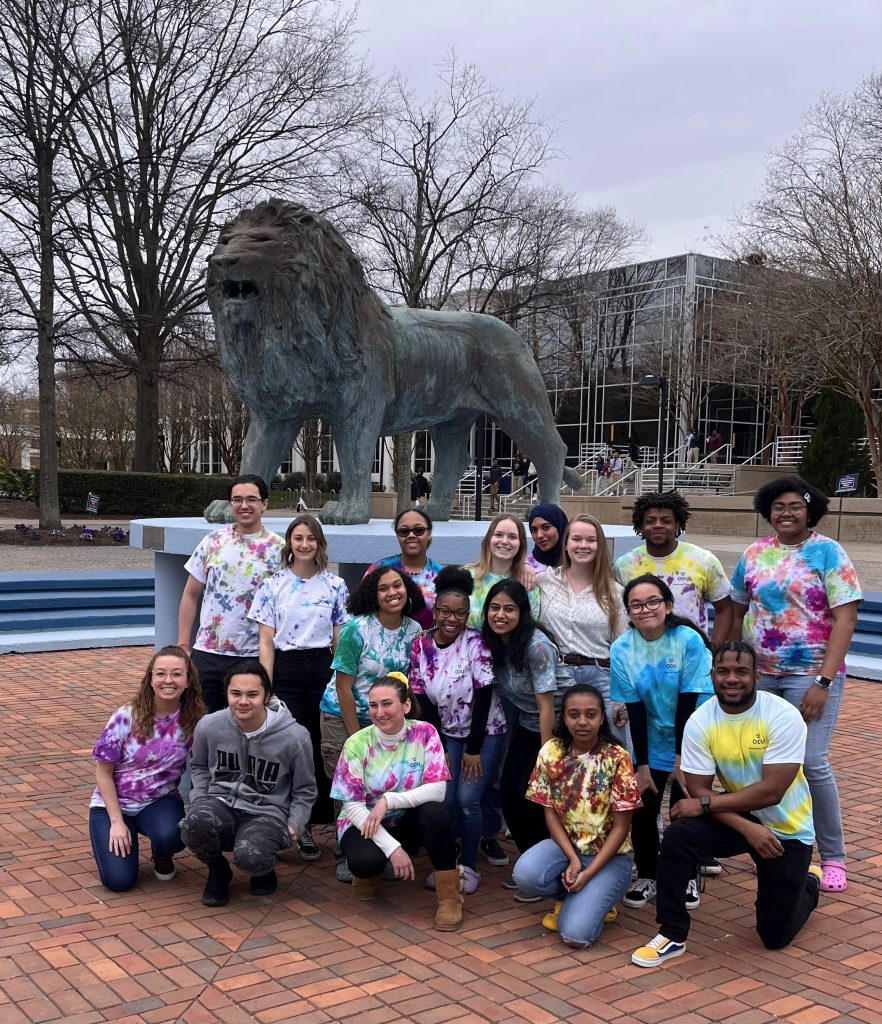
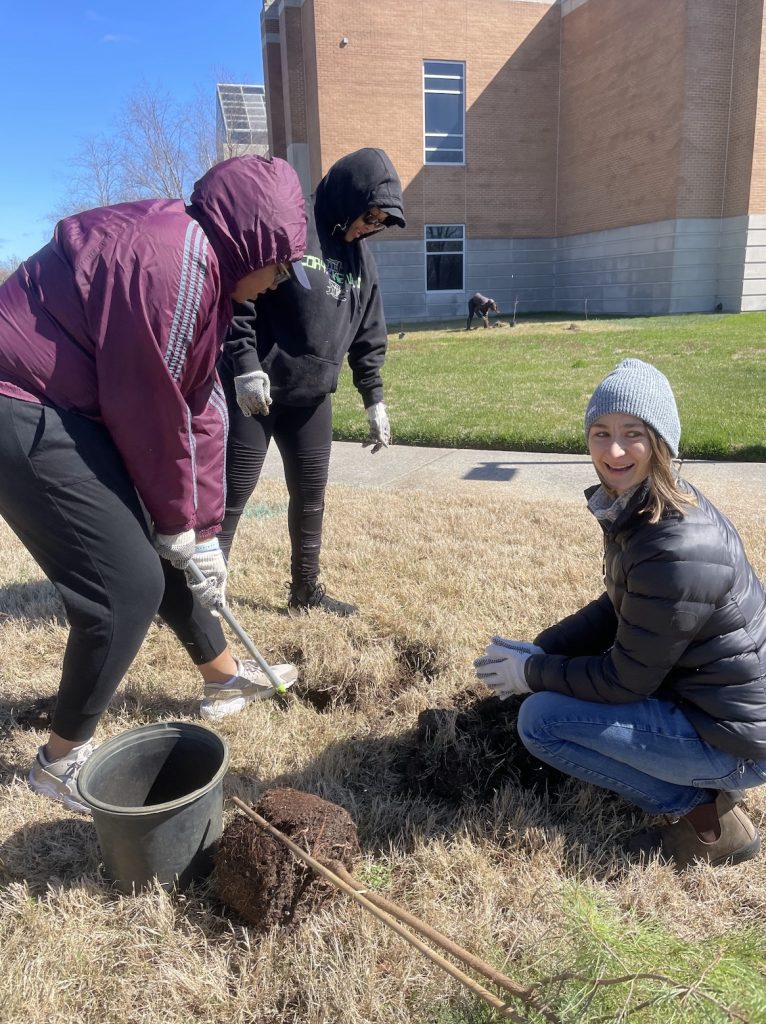
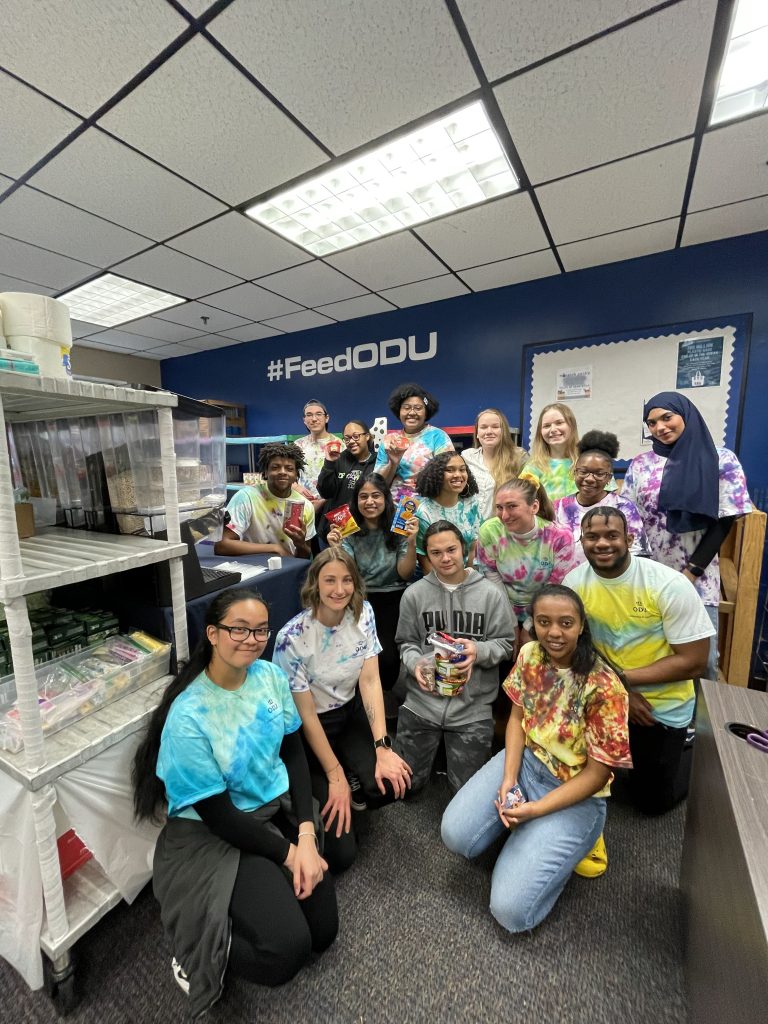
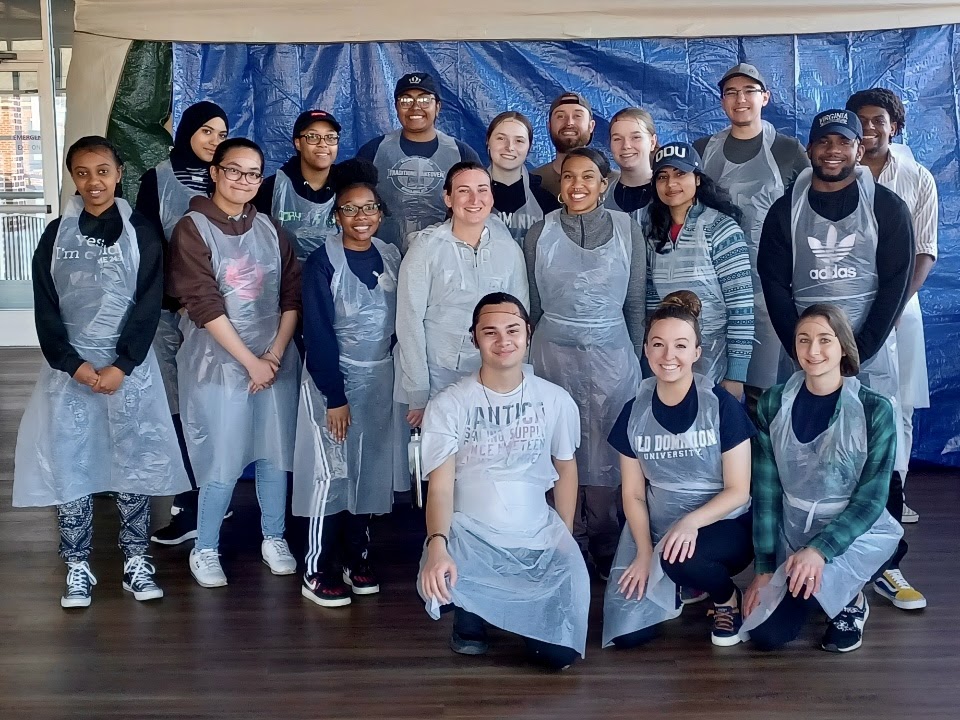
Norfolk Food Policy Council
- Description: The purpose of the emerging Norfolk Food Policy Council (FPC) is to facilitate the more equitable restructuring of the Norfolk food system by identifying community needs, informing and proposing policy, and supporting efforts through funding allotment. The Norfolk FPC is composed of involved and interested individuals from the Norfolk area including community members, non-profit employees, City staff, Norfolk Public School staff, area university representatives, and growers.
- My Role: I am a member of the Norfolk FPC. My membership is due to my involvement with the Monarch Pantry at ODU as a Graduate Assistant, as well as my APE work supporting Dr. Hoglund’s Food Secure Communities research and her role as the FPC co-chair.
- Knowledge & Skills: My involvement in the Norfolk FPC has given me a front row seat to the process of forming a food policy council, something I had never been exposed to previously. This process has included participating in meetings and reviewing meeting recordings to identify themes, as well as assisting with charter development. I have also had the opportunity to meet many new professionals and learn about the numerous efforts happening in the area to improve the food system.
Westside Produce & Provisions Volunteer Garden Manager
- Description: Westside Produce & Provisions is a family-owned store in Norfolk, VA selling locally sourced foods. In addition to the store front, the property includes a raised bed garden growing flowers, herbs, and vegetables.
- My Role: Myself and another community member serve as volunteer garden managers for the garden located on-site. Due to the limited time that the store owners have to devote to the garden, helping to manage the space ensures it remains productive – providing items to be sold in the shop – and manicured – creating an inviting space to welcome people visiting the store front. Any produce not sold in the store is donated to the 757 Community Fridge for distribution to community members.
- Knowledge & Skills: Gardening in an urban environment is a continuous learning experience. Being in a public space has the added benefit and challenge of being open to the public. This both allows for more interaction with community members interested in learning about the space, but also the potential for things to be tampered with. Additionally, learning to grow in a new-to-me region and testing different plants and varietals has been a constant experiment that we learn more and more from with each seed we sow.
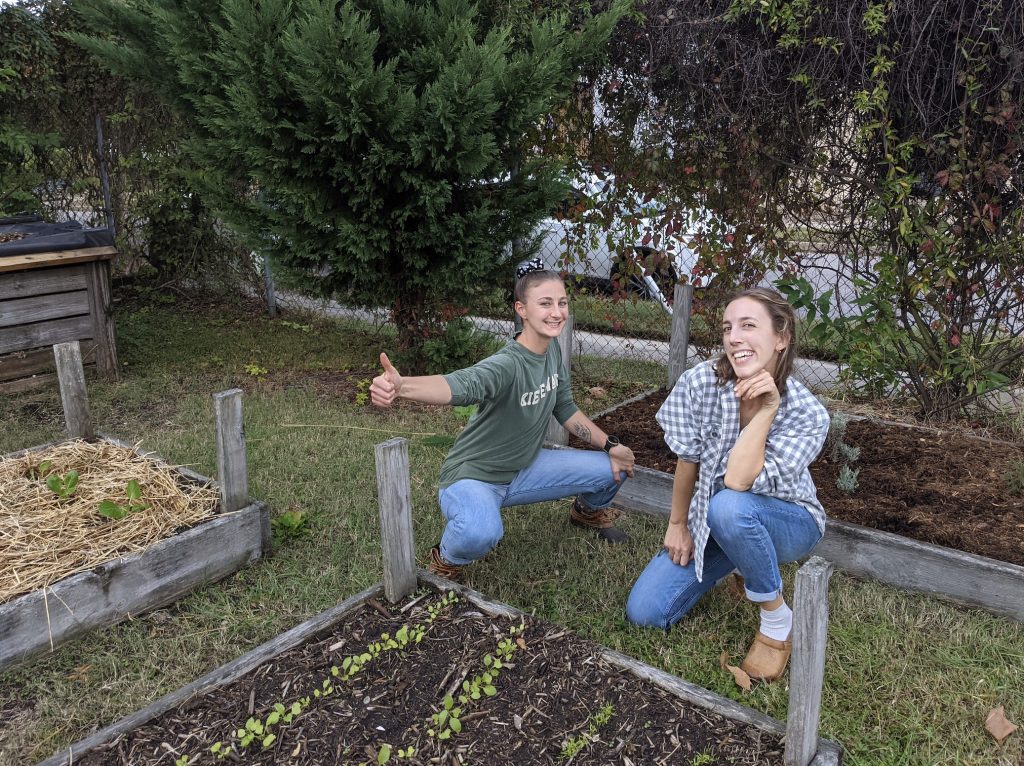

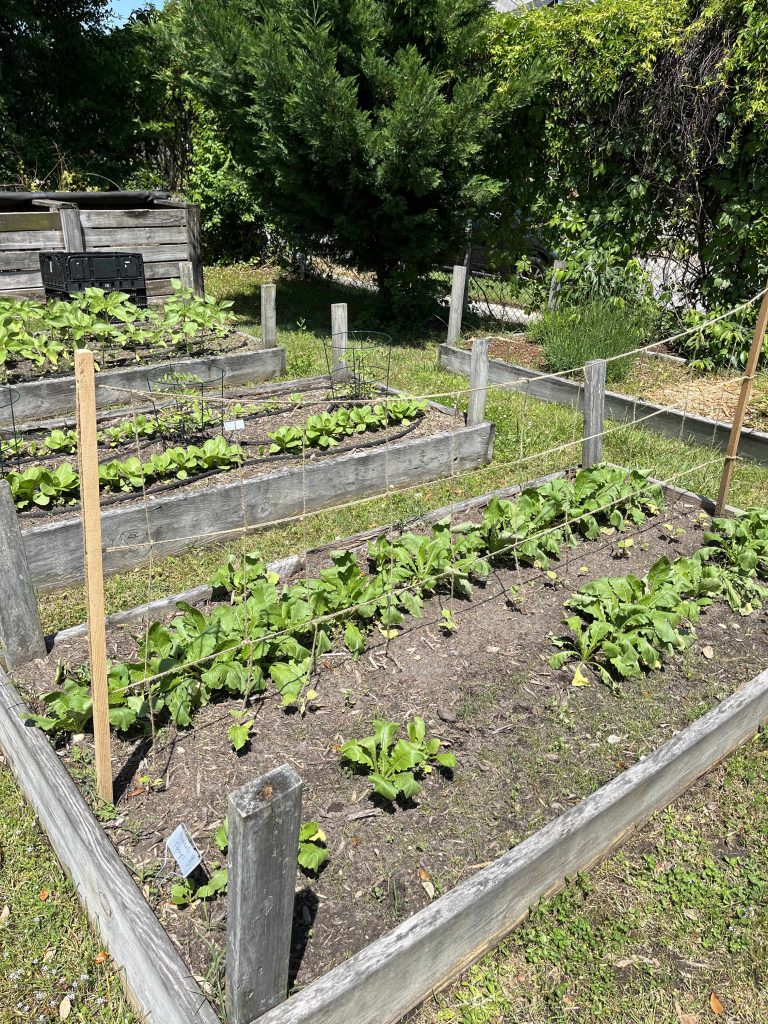
SNAP Volunteer Coordinator – South of the James Farmers Market
- Description: The South of the James Farmers Market is a producer only market located in Richmond, VA. The market showcases local vendors selling fresh produce, meat, dairy, and eggs; handcrafted goods; beverages; and prepared food items.
- My Role: For a market season, I acted as the SNAP Volunteer Coordinator at the South of the James Farmers Market. Specifically, I was helping to promote and manage their Virginia Fresh Match Program. The Virginia Fresh Match Program aims to increase access to fresh produce for low-income individuals by doubling the value of SNAP dollars (typically up to $20) at participating farmers markets. In this role, I interacted with community members to answer questions, process payments, and increase education and awareness of the program.
- Knowledge & Skills: While I was previously familiar with the Virginia Fresh Match Program, this role allowed me to be directly involved in the program implementation. It was beneficial to see the benefits and challenges of program implementation and the difficulties of reaching qualifying individuals. Despite providing up to an additional $10 to spend on fresh produce, utilization of the program was low, indicating that it may not be the best way to improve food access for individuals receiving SNAP benefits in the Richmond area.
Jefferson Public Citizens Program Research – Charlottesville City Farmers Market
- Description: The Jefferson Public Citizens Program was a grant program at the University of Virginia that funded multi-disciplinary teams of students, faculty, and community partners to perform community-based research projects.
- My Role: As an undergraduate student, I was part of a four-member team awarded multiple rounds of funding to complete research focused on expanding economic, cultural, and physical access to the Charlottesville City Farmers Market. During the first year of our project we conducted a randomized survey of current market customers to to inform decisions about the future location of the market, performed stakeholder outreach and engagement, and researched best practices at other farmers markets. Using findings form these efforts, we piloted an intervention during our second year of funding to increase economic market access through children’s programming. The pilot intervention was based on a program in use at the Oregon City Farmers Market called the Power of Produce (POP) Club. This program provided children with $2 in market currency to spend on fresh fruits and vegetables at the farmers market. It also included educational programming to increase the children’s knowledge and exposure to healthy foods. Such programming implemented in our pilot program included fruit and vegetable tastings through a “two-bite club”, a plant-based cooking demo, a produce scavenger hunt, and bike-powered smoothie making. While the program in Charlottesville did not progress past the pilot phase due to funding limitations, the POP Club program was deemed successful through evaluation, and a toolkit was developed with the Famers Market Coalition for the program to be easily adopted in other locations. The POP Club has since been adapted for use by farmers markets nation-wide.
- Knowledge & Skills: Participation in this research project was the most rewarding and informative experience of my undergraduate career. Through my involvement, I was exposed to community-based research and gained experience with survey development/deployment/analysis, stakeholder engagement, program implementation/monitoring/evaluation, and community outreach. I learned the challenges of conducting community-based research and that nothing ever goes quite as planned, but also the vast benefits of developing interventions that are truly informed by community needs and input.
